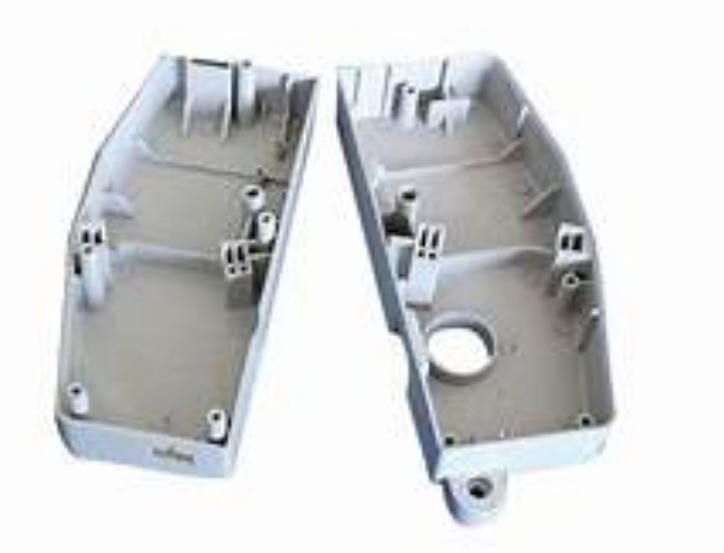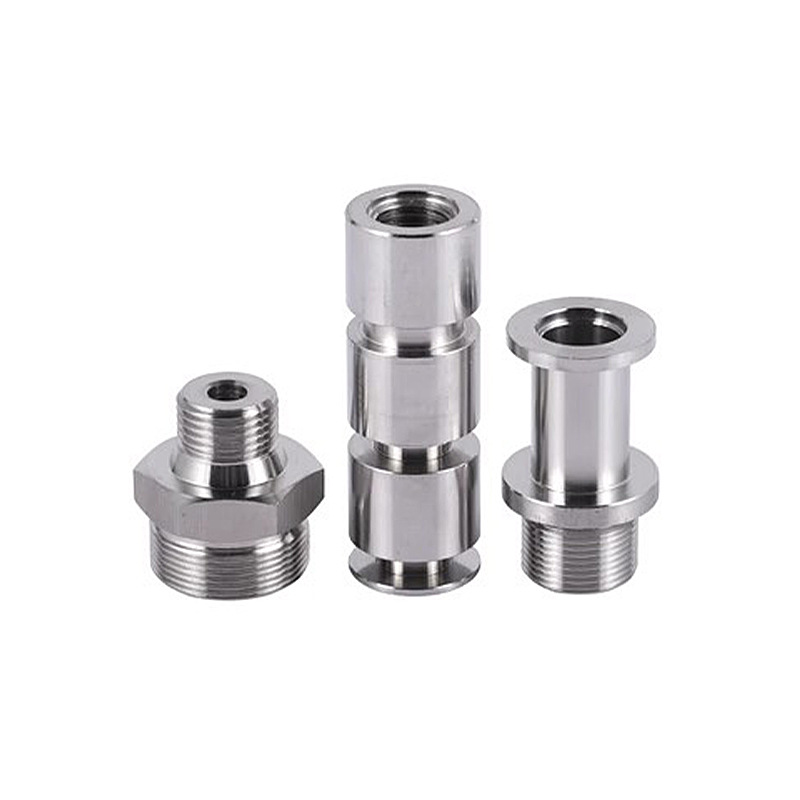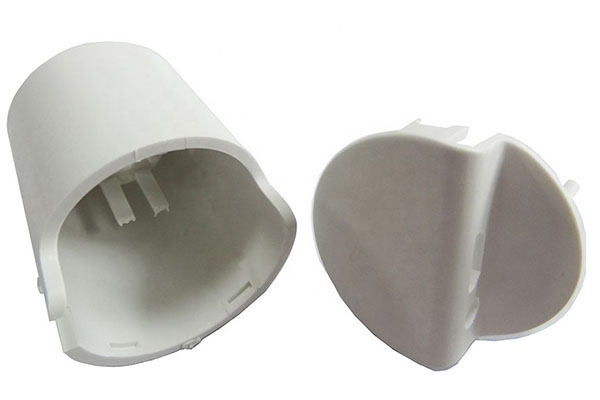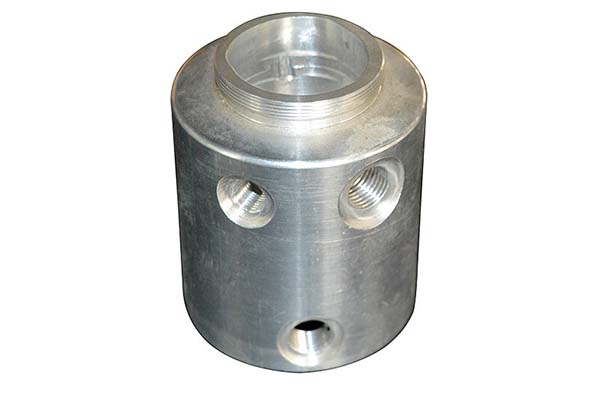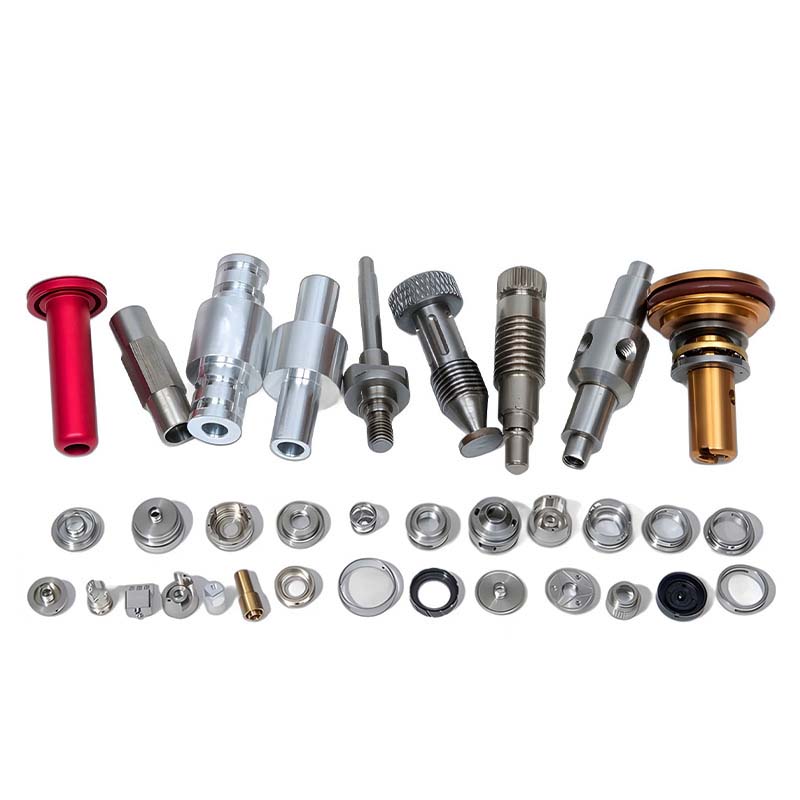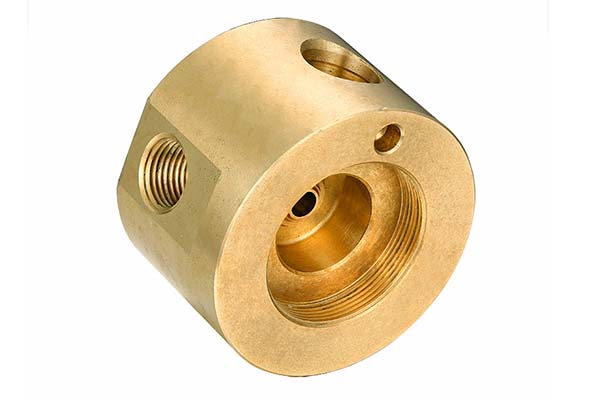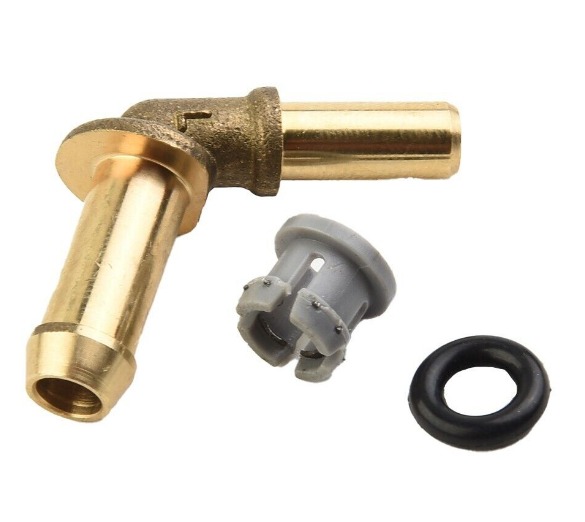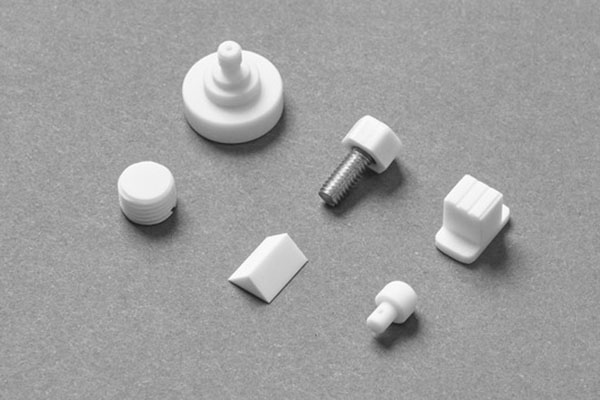Understanding the Crucial Role of Precision Parts Manufacturers
In today's highly competitive business landscape, precision parts manufacturers play a pivotal role in helping companies gain a competitive edge. These manufacturers are the unsung heroes behind the scenes, providing the high - quality, precisely engineered components that are the building blocks of countless products across various industries.
Take the automotive industry as an example. Precision parts are fundamental to the performance, safety, and reliability of vehicles. A well - engineered engine piston, for instance, must have exact dimensions and tolerances. A deviation of even a fraction of a millimeter can lead to inefficiencies such as decreased fuel economy, reduced power output, and increased emissions. According to industry data, engines with precision - made parts can improve fuel efficiency by up to 15%, which is a significant factor considering the rising costs of fuel and the growing emphasis on environmental sustainability. In terms of safety, precision - manufactured braking system components ensure consistent and reliable stopping power. Research shows that vehicles with high - quality precision - made brakes have a 20% lower risk of brake failure compared to those with sub - standard parts.
The aerospace industry is another prime example. Aircraft engines are marvels of engineering, and every part within them, from the smallest turbine blades to the complex fuel injectors, must be manufactured with extreme precision. Turbine blades, which operate under extremely high temperatures and rotational speeds, need to be made with a precision tolerance of within 0.001 inches. Any deviation could cause the blade to fail, leading to catastrophic consequences. In fact, in the aerospace industry, a single part failure can result in millions of dollars in losses, not to mention the potential risk to human lives. Precision parts manufacturers ensure that these critical components meet the stringent requirements of aerospace engineering, allowing aircraft to fly more efficiently, safely, and with reduced maintenance needs.
In medical devices, precision parts are equally crucial. Surgical instruments, for example, need to be made with the highest level of precision to enable accurate and minimally invasive procedures. A precision - crafted scalpel can make cleaner incisions, reducing tissue damage and promoting faster healing. In the field of diagnostic equipment, such as MRI machines, precision - made magnets and coils are essential for generating clear and accurate images, which are vital for early disease detection and accurate diagnosis.
In summary, precision parts manufacturers are the backbone of industries that demand high - performance products. By providing components with exact specifications, they enable companies to produce goods that are more reliable, efficient, and of higher quality, ultimately helping these companies stand out in the competitive marketplace.
1. Unparalleled Precision and Quality
(1) Advanced Manufacturing Technologies
Precision parts manufacturers utilize a suite of advanced manufacturing technologies to achieve the highest levels of accuracy. One of the most prevalent technologies is Computer Numerical Control (CNC) machining. CNC machines are programmed to execute a series of precise movements, enabling the creation of parts with extremely tight tolerances. For example, in the production of high - performance engine components, CNC milling can achieve tolerances as low as ±0.001 inches. This level of precision ensures that each part fits perfectly within the engine assembly, optimizing performance and reducing wear and tear.
Electrical Discharge Machining (EDM) is another crucial technology. EDM uses electrical discharges (sparks) to remove material from a workpiece. It is especially useful for creating complex shapes and for working with hard materials that are difficult to machine using traditional methods. In the aerospace industry, EDM is often used to produce turbine blades with intricate cooling channels. These channels are critical for maintaining the integrity of the blades under high - temperature operating conditions, and EDM allows for their precise formation with a high degree of repeatability.
3D printing, also known as additive manufacturing, is emerging as a game - changer in precision parts production. This technology builds parts layer by layer, based on a digital model. It offers the ability to create highly customized, complex geometries that would be nearly impossible to produce with traditional manufacturing techniques. In the medical device industry, 3D printing is being used to create patient - specific implants. These implants are designed to fit the unique anatomy of each patient, improving the success rate of surgeries and enhancing patient recovery.
(2) Stringent Quality Control Measures
Quality control is at the heart of precision parts manufacturing. Manufacturers follow a multi - step process to ensure that every part leaving their facilities meets the highest standards. It all starts with the inspection of raw materials. For instance, before using metal alloys in production, they are thoroughly tested for chemical composition and mechanical properties. A common test for metals is the hardness test, which helps determine if the material is suitable for the intended application. By using spectrometers and other advanced testing equipment, precision parts manufacturers can detect even the slightest impurities in the raw materials, preventing potential issues downstream in the production process.
During the manufacturing process, in - process inspections are carried out at various stages. For CNC - machined parts, dimensional checks are performed regularly using coordinate measuring machines (CMMs). These machines can measure the dimensions of a part with extreme accuracy, typically within ±0.0001 inches. If any deviation from the specified tolerances is detected, the manufacturing process is immediately halted, and corrective actions are taken. This could involve adjusting the machine settings, replacing worn - out tooling, or re - evaluating the production program.
Once the parts are fully manufactured, they undergo a final quality inspection. This includes both functional and visual inspections. In the automotive industry, for example, precision - made brake calipers are not only tested for their dimensional accuracy but also for their performance under simulated braking conditions. They are subjected to high - pressure hydraulic tests to ensure that they can withstand the forces generated during braking without leaking or failing. Visual inspections are also crucial, as any surface defects such as scratches, cracks, or porosity could affect the part's integrity.
The commitment to quality is further demonstrated by the low defect rates achieved by precision parts manufacturers. Industry - wide, many top - tier manufacturers report defect rates of less than 0.1%. This means that for every 1000 parts produced, fewer than one is likely to be defective. Such low defect rates are a testament to the effectiveness of their advanced manufacturing technologies, strict quality control measures, and the expertise of their workforce.
2. Customization to Meet Unique Needs
(1) Tailoring Solutions for Diverse Industries
Precision parts manufacturers understand that each industry has its own set of unique requirements. In the medical industry, for example, parts must not only be highly precise but also biocompatible. Components for implantable devices, such as hip replacements or pacemakers, need to be made from materials that are non - toxic and will not cause an adverse reaction in the human body. Precision parts manufacturers work closely with medical device companies to select the right materials, such as titanium alloys for their strength and biocompatibility, and then use their advanced manufacturing techniques to create parts with the necessary precision for optimal performance.
In the electronics industry, miniaturization is a key trend. As consumers demand smaller and more powerful electronic devices, precision parts manufacturers are tasked with producing components that are both tiny and highly functional. For instance, the components in a smartphone, like the micro - sized connectors and intricate circuit board components, need to be manufactured with extreme precision to ensure reliable electrical connections and high - speed data transfer. These parts often have tolerances in the micrometer range, and precision parts manufacturers use state - of - the - art equipment, such as high - precision micro - milling machines, to meet these demanding requirements.
The energy industry also has its own set of challenges. In the production of wind turbines, for example, precision - made gearbox components are crucial. These components must be able to withstand high torque and rotational forces while operating in harsh environmental conditions. Precision parts manufacturers use specialized heat - treatment processes to enhance the strength and durability of these parts. They also employ advanced manufacturing techniques to ensure that the gears are precisely cut and have smooth surfaces, reducing friction and increasing the overall efficiency of the wind turbine.
(2) Collaboration from Concept to Completion
The success of precision parts manufacturing often hinges on close collaboration with clients from the very beginning. When a client approaches a precision parts manufacturer with a new product concept, the manufacturer's engineering team will work closely with the client's design team. This initial stage involves a deep - dive into the client's requirements, understanding the intended application of the parts, and the performance expectations.
For example, if a client is developing a new high - performance racing car and needs custom - made engine components, the precision parts manufacturer will start by analyzing the client's design sketches and specifications. The manufacturer may then provide feedback on the design, suggesting modifications to improve manufacturability without sacrificing performance. This could involve recommending changes to the geometry of the parts to simplify the machining process or suggesting alternative materials that are more cost - effective while still meeting the required strength and heat - resistance criteria.
During the prototyping phase, the precision parts manufacturer will produce sample parts using rapid prototyping techniques such as 3D printing. These prototypes are then tested and evaluated by the client. Based on the client's feedback, the manufacturer will make further refinements to the design and production process. This iterative process continues until the client is satisfied with the prototype.
Once the design is finalized, the precision parts manufacturer moves into full - scale production. Throughout the production process, the manufacturer maintains open lines of communication with the client, providing regular updates on the progress of the order. They also ensure that the production process adheres to the highest quality standards, conducting rigorous quality control checks at every stage.
Finally, when the parts are completed, the manufacturer is responsible for their delivery. They work with reliable logistics partners to ensure that the parts are shipped on time and arrive in perfect condition. This end - to - end collaboration ensures that the final product meets the client's exact requirements, giving the client a competitive edge in the market.
3. Cost - Efficiency in the Long Run
(1) Reducing Waste and Rework
Precision in production is not only about quality but also about cost - efficiency. High - precision manufacturing significantly reduces material waste. When parts are produced with exact specifications, there is less room for error, which means fewer parts need to be scrapped due to dimensional inaccuracies or other defects.
For example, in a traditional manufacturing process, if the tolerance for a metal part is set relatively wide, there may be a higher chance that the part will not fit properly within the final product assembly. This could lead to the part being rejected, and the material used to produce it is essentially wasted. In contrast, a precision parts manufacturer, with its advanced CNC machining and strict quality control, can produce parts with much tighter tolerances. This ensures that almost every part produced meets the required standards, minimizing material waste.
Rework is another area where precision parts manufacturers can save costs. Reworking a part due to defects is not only time - consuming but also expensive, as it involves additional labor, resources, and often, the need to use more materials. A study by a leading manufacturing research firm found that on average, a company without the help of precision parts manufacturers spends approximately \(50,000 per year on rework costs for a medium - sized production line. In contrast, companies that collaborate with precision parts manufacturers can reduce these rework costs by up to 70%, bringing the annual rework cost down to around \)15,000. The following table clearly shows the cost difference:
| Scenario | Annual Rework Costs | Annual Material Waste Costs | Total Annual Cost Related to Waste and Rework |
| Without Precision Parts Manufacturer | $50,000 | $30,000 | $80,000 |
| With Precision Parts Manufacturer | $15,000 | $5,000 | $20,000 |
As demonstrated in the table, by partnering with precision parts manufacturers, companies can save a substantial amount of money in waste and rework - related costs each year.
(2) Optimizing Production Processes
Precision parts manufacturers are experts in optimizing production processes. They use advanced software and analytics to analyze every step of the production line, identifying bottlenecks and areas for improvement.
One common optimization strategy is lean manufacturing. This approach focuses on eliminating waste in all forms, including overproduction, waiting times, excess inventory, and unnecessary processing steps. For example, a precision parts manufacturer might implement just - in - time (JIT) inventory management. Instead of keeping large stockpiles of raw materials and finished parts, they order and produce items exactly when they are needed. This reduces inventory holding costs, such as storage space, insurance, and the risk of inventory obsolescence.
Another aspect of process optimization is the use of advanced automation. Precision parts manufacturers often invest in state - of - the - art robotic systems and automated machinery. These not only increase the precision of the production process but also speed it up. Automated machines can work continuously without breaks, reducing production times. For instance, in the production of small, intricate electronic components, automated pick - and - place machines can place tiny parts on circuit boards with extreme accuracy and at a much faster rate than human operators. This increased speed and accuracy translate into higher production volumes in less time, ultimately lowering the unit cost of each part.
In addition, precision parts manufacturers regularly review and update their production equipment and technologies. They stay abreast of the latest advancements in manufacturing, such as new types of cutting - edge tools or more efficient manufacturing processes. By adopting these new technologies, they can further improve production efficiency and reduce costs. For example, the use of high - speed milling machines can reduce the time required to machine a complex part by up to 30%, while also improving the surface finish and dimensional accuracy. This combination of reduced production time and improved quality leads to a significant decrease in the overall cost per unit, giving their clients a cost - competitive edge in the market.
Yigu Technology's Perspective
As a non - standard plastic and metal products custom supplier, Yigu Technology firmly believes in the power of customization and advanced technology. We understand that every client has unique requirements, and our team of experts works closely with them from the initial design concept. By leveraging our state - of - the - art manufacturing equipment, including high - precision CNC machines and advanced 3D printers, we can bring even the most complex designs to life.
We also place great emphasis on quality control. From the selection of top - grade raw materials to the final inspection of the finished products, each step is strictly monitored to ensure that our clients receive parts that not only meet but exceed their expectations. This commitment to quality, combined with our ability to provide quick turnaround times, allows our clients to stay ahead in the highly competitive market. Whether it's a small - scale prototype or a large - volume production order, Yigu Technology is dedicated to delivering solutions that give our clients a distinct competitive edge.
FAQ
1. How do precision parts manufacturers ensure the accuracy of their products?
Precision parts manufacturers use advanced equipment like CNC machines, which can achieve extremely tight tolerances, often within ±0.001 inches or even smaller for high - end applications. Coordinate measuring machines (CMMs) are also employed to measure the dimensions of parts with high accuracy, typically within ±0.0001 inches. They have a multi - step quality control process. First, raw materials are inspected for chemical composition and mechanical properties. During production, in - process inspections are carried out regularly, and any deviation from the specified tolerances will lead to immediate corrective actions. Finally, a comprehensive final inspection, including both functional and visual checks, is performed to guarantee the accuracy and quality of the products.
2. Can precision parts manufacturers handle small - batch production?
Yes, they can. Many precision parts manufacturers have the flexibility to handle both large - scale production and small - batch production. They use advanced manufacturing technologies such as 3D printing and CNC machining, which can be easily re - programmed for different part designs and production volumes. For small - batch production, they can quickly set up the production line, and the in - house engineering teams can optimize the production process to ensure high - quality output even with a small number of parts. This allows companies with limited production needs or those in the prototype stage to benefit from the high - precision manufacturing capabilities of these manufacturers.
3. What industries can benefit most from precision parts manufacturing?
Industries such as medical, aerospace, and electronic benefit significantly. In the medical industry, precision parts are crucial for surgical instruments and diagnostic equipment. For example, a precision - crafted scalpel ensures accurate incisions, and precise components in MRI machines are essential for clear imaging. In the aerospace industry, the extreme operating conditions require parts to be made with extreme precision. Turbine blades in aircraft engines, for instance, need to have a precision tolerance of within 0.001 inches to withstand high temperatures and rotational speeds. In the electronics industry, the trend towards miniaturization demands highly precise components. The tiny connectors and circuit board components in smartphones, which often have tolerances in the micrometer range, rely on precision manufacturing techniques to ensure reliable performance.
